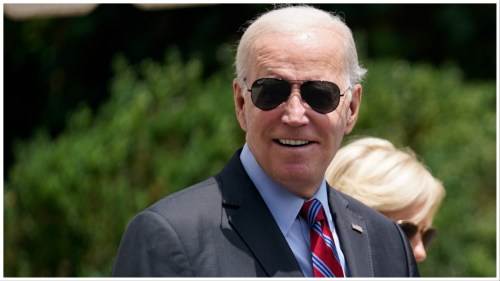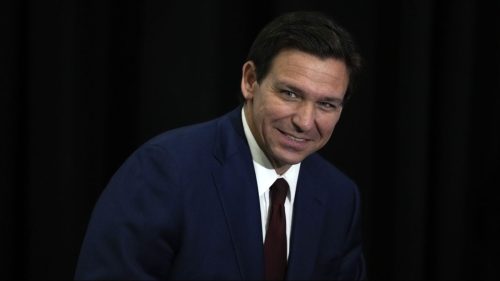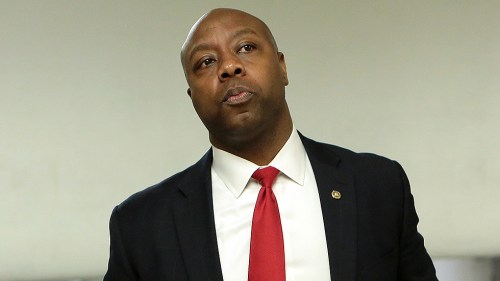GOP concerns grow over Trump presence in House races
GOP concerns are mounting over the impact former President Trump could have on competitive House races this cycle if he’s the nominee as the party looks to hold onto its narrow majority in the lower chamber.
Many Republicans blamed the former president last cycle for the party’s lackluster performance in what was supposed to be a red wave year.
This time around, Republican primary voters are falling in line behind Trump, but fears persist he could drive away moderate and independent voters in swing districts across the country.
“When you go back and look at what we saw in the past three elections, really, there were a lot of seats that were left on the table that Republicans should have won and a lot of that is due to how Trump has been a drag for Republicans,” said Doug Heye, a Republican strategist.
Poll after poll at the national and state level shows Trump dominating the GOP presidential primary field. The Real Clear Politics average shows the former president leading the crowded field with 57.3 percent support. Florida Gov. Ron DeSantis is his closest rival, coming in at 13.5 percent support, according to the average.
“I think for a lot of Republicans, they prefer to stay out of Donald Trump’s gaze,” Heye said. “They know that he’s there, but they don’t necessarily want to campaign with him. Some of that may be maybe avoidable, or maybe unavoidable.”
Many of the swing districts this year are in states that are swing states at the national level, including Arizona’s first and sixth congressional districts, as well as Pennsylvania’s 7th and 8th congressional districts. However, several Republican incumbents are running in the Democratic strongholds of New York and California, such as moderate Reps. Mike Lawler (R-N.Y.) and Marc Molinaro (R-N.Y.).
“In a perfect world, you have a moderate Republican in those districts as your nominee. You have Nikki Haley as your nominee, not that she’s moderate, but she’s not an inflection point where it’s a constant battle [of], ‘Do you support what this candidate said?’” said Tom Doherty, who worked as an aide to former New York Gov. George Pataki (R). “You don’t need that in a general election, particularly when you’re running in a close race.”
One factor House Republican candidates and incumbents won’t be able to avoid is Democrats moving to tie them to Trump.
“Just ask any of them about his criminal indictments, lies, and dangerous ideas like defunding federal law enforcement, and watch them stumble over themselves to avoid giving a straight answer. Why? They know how toxic it is to be associated with the man from Mar-a-Lago,” said Viet Shelton, a spokesperson with the Democratic Congressional Campaign Committee.
However, some Republicans are skeptical that Trump will have that big of an impact on House races.
“We’re focused on what we can control and that’s candidate recruitment and candidate quality,” said one national Republican strategist. “Trump’s candidacy is not something we spend a lot of time worrying about.”
Republicans who say they are not worried about the former president having a negative impact on House races point to external factors that would come into play regardless of who the GOP nominee is.
Florida-based GOP strategist Ford O’Connell pointed to Republicans needing to beat Democrats at their own game when it comes to methods like ballot collecting, early voting and mail-in voting. Most states allow a third party to return a completed ballot on behalf of a voter, a process referred to as ballot collecting or ballot harvesting.
“Remember in California and New York, we got slaughtered in 2018 because those state parties started doing what I call ballot harvesting,” O’Connell told The Hill. “When you look at these House seats, how good can Republicans catch up to ballot harvesting, mail-in voting, and early voting.”
And Republicans across the board have already started implementing this approach. In June, the Republican National Committee launched its “Bank Your Vote” campaign, which is meant to encourage Republican voters to get comfortable with mail-in voting.
Trump, who has been one of the most vocal skeptics of mail-in voting, recorded a video earlier this summer encouraging Republicans to vote early. The roughly 40-second video was shared by the RNC. But Republicans say their party’s committees at all levels will have a part to play, particularly if they are in Democratic-leaning states.
“Republican parties in New York and California have to do as good a job as possible regardless of any Republican nominee,” O’Connell said. “These are arctic blue Dem strongholds.”
In terms of swing states, O’Connell said Republican candidates should look at the playbook employed by Wisconsin Sen. Ron Johnson (R), who won his reelection bid in the swing state last year despite warnings of a blue wave.
“Look no further than Ron Johnson who literally withstood a tidal wave coming at him in 2022 and managed to win in Wisconsin, statewide,” O’Connell said. “He never backed down on Trump, he never changed his positions, he was just very tactical about how he explained it on the stump and to voters.”
Republicans will also have to contend with the likelihood of high Democratic turnout given the election is taking place in a presidential year.
“The difference between a presidential and midterm just generally speaking is a 15 percent increase in turnout,” O’Connell said.
But with the national mood low and voters decidedly unenthusiastic about a Biden-Trump rematch, some Republicans note that the top of the ticket may not ultimately matter when it comes to House races.
“State and congressional candidates really need to do what smart candidates have always done, they’ve got to run on their own and they’ve got to be emphatically on their own,” said Keith Naughton, a Republican strategist who has worked on races in Pennsylvania. “That can work for them because I doubt that the nationally mood is going to change substantially in the next year.”
Copyright 2023 Nexstar Media Inc. All rights reserved. This material may not be published, broadcast, rewritten, or redistributed. Regular the hill posts












